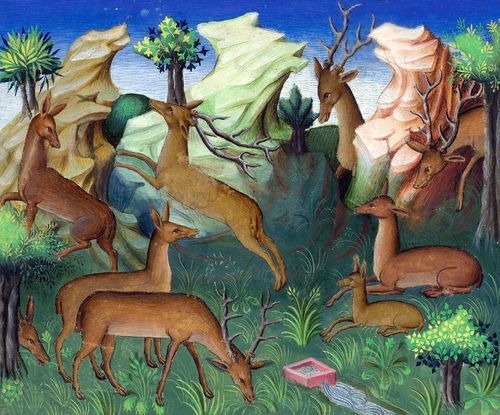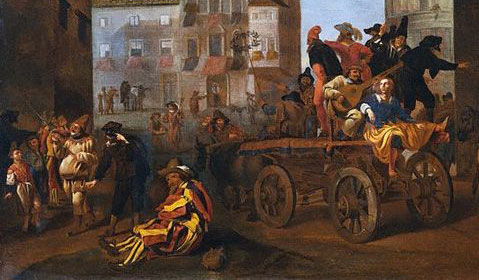Midori Snyder's Blog, page 10
February 28, 2022
Emile Snyder Archives at University of Washington
It is wonderful to know that younger researchers in the area of African studies are still looking into my father Emile's work -- his photographs and his collection of recordings of musicians from many areas of West Africa, including Senegal and the Ivory Coast. Here's a link to the collection for anyone interested in having a look and a listen. (It's a bit of a wonky linking -- but it will get you to the right places.)

UW Ethnomusicology Archives audio recordings: Emile Snyder field recordings (Senegal), 1963
Overview of the Collection
Creator Snyder, Emile
Title: UW Ethnomusicology Archives audio recordings: Emile Snyder field recordings (Senegal)
Dates
1963
Quantity
7 items : EC - 7 reels (7 1/2 ips, full-track, 7"); 7 .aif files (48 kHz, 24-bit); Duration: 2:59:02
Collection Number
1963004
Summary
Recorded in 1963 in Senegal during field research conducted in West Africa 1963-64.
Repository
University of Washington Ethnomusicology Archives
University of Washington
Ethnomusicology Archives
Box 353450
Seattle, WA
98195-3450
Telephone: 2065430974
ethnoarc@uw.edu
Access Restrictions
Access is restricted.
Languages
English
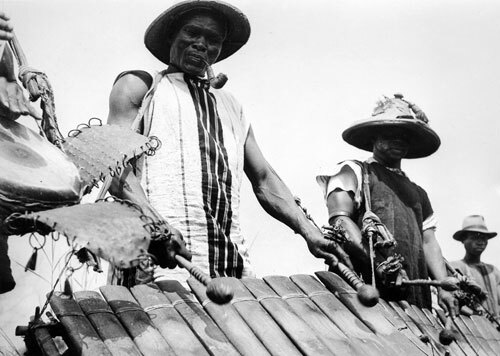
Historical Note Return to Top
Emile Snyder was a professor of African Literature and Languages, specializing in contemporary African Literature written in French and English. He taught at a number of universities, including the University of Wisconsin - Madison, the University of Dar- es Salaam, Tanzania, and Indiana University. In the years 1963-1964 he conducted research on African contemporary literature in West Africa. While there, he met and interviewed many emerging African authors.
Content Description Return to Top
Recorded on a Stancil-Hoffman tape recorder.
Transmission Data: Digital files created 1/2012 - 63-4.1.aif through 63-4.7.aif (48 kHz, 24-bit); work tape reels de-acquisitioned.
Contents:
63-4.1 (Tape 1 of 7) Tr. 1-6 - Interview with Mr. Niang (11/63?) / percussion and singing (Total Duration = 24:07)
63-4.2 (Tape 2 of 7) (speed variation on tape) Performers: Malang Ding Komate (Kora and Voice?) and Dicvcou Lissoko [Cissoko?] (Voice) - Tr. 1-6 - Voice and kora; Tr. 7 - Balafon ensemble (Total Duration = 32:31)
63-4.3 (Tape 3 of 7) Tr. 1-6 - Voice and kora (Mandinka) (fall 1963) (Total Duration = 24:10)
63-4.4 (Tape 4 of 7) Tr. 1-6 - Solo kora music (fall 1963) (Total Duration = 27:00)
63-4.5 (Tape 5 of 7) (sound distortion on track 8) Performers: Mama Diebe Seck, Sidy Mbaye (xalam) and others - Tr. 1-9 - Xalam music (from eastern Senegal?): Toutou Diarra / Tono / Saradiabi / Daouda / Saraba / Kairaba / Maramba (titles taken from tape box; timing of each example unidentified; track 8 includes vocals); Tr. 10-12 - Music from Cape Verde? (Total Duration = 28:15)
63-4.6 (Tape 6 of 7) Chants from the Koran, Dakar, Senegal, 11/1/1963 Tr. 1-5 - Chants from the Koran (Total Duration = 23:42)
63-4.7 (Tape 7 of 7) Kora Solos by Mamadou Kouyate, Dakar, Senegal, 11/25/1963 (speed variation on tape) Tr. 1 - Masane Cise (kora & voice) ; Tr. 2 - Kelefaba (kora & voice); Tr. 3-5 - Kora & voice (Total Duration = 19:17)
Documentation: Notes from tape boxes (reels 1, 4-7)
Administrative Information Return to Top
Names and Subjects Return to Top
Subject Terms
Ethnomusicology
Geographical Names
Form or Genre Terms
Sound Recordings
February 14, 2022
The Novels of Mythic and Perilous Travel Across Borders
"Traveling is a brutality. It forces you to trust strangers and to lose sight of all that familiar comfort of home and friends. You are constantly off balance. Nothing is yours except the essential things: air, sleep, dreams, sea, the sky - all things tending towards the eternal or what we imagine of it.���
--Cesare Pavese
Here is a short list of my favorite novels that I have reviewed over the last ten years that in many ways embody the sensibilities of Pavese's brilliant observation:
 Signs Preceding the End of the World by Mexican author Yuri Herrera is an amazing and haunting work. Makina is given a note from her mother to take to an older brother who has disappeared into the North. Along the way, Makina encounters a series of ambiguous helpers: the thug who mysteriously owes her mother, the trading of favors with a coyote, the strangers who pull her along the road, the rivers, and mountain passes, and then the cities themselves, full of mazes, flags, and shops until she arrives at a place to discover her brother, changed utterly. Read more > >
Signs Preceding the End of the World by Mexican author Yuri Herrera is an amazing and haunting work. Makina is given a note from her mother to take to an older brother who has disappeared into the North. Along the way, Makina encounters a series of ambiguous helpers: the thug who mysteriously owes her mother, the trading of favors with a coyote, the strangers who pull her along the road, the rivers, and mountain passes, and then the cities themselves, full of mazes, flags, and shops until she arrives at a place to discover her brother, changed utterly. Read more > >
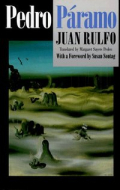 Pedro Paramo by Mexican author Juan Rulfo' opens with a spare compelling prose, like a darkly lived fairy tale, hinting at the ghostly journey to come in an altered landscape. In late August Juan travels to Comala, a town so hot and dry, popular myth has it that "when people die and go to hell, they return for a blanket." Juan is greeted by Eduviges Dyada, an old friend of his mother's, and quickly learns that Pedro P��ramo, the father he is seeking, is long dead. But the conversation takes an odd turn, as Eduviges tells Juan that his mother had told her just that day to expect him. When Juan tells his mother is dead, Eduviges merely shrugs and responds, "So that was why her voice was so weak." Read more > >
Pedro Paramo by Mexican author Juan Rulfo' opens with a spare compelling prose, like a darkly lived fairy tale, hinting at the ghostly journey to come in an altered landscape. In late August Juan travels to Comala, a town so hot and dry, popular myth has it that "when people die and go to hell, they return for a blanket." Juan is greeted by Eduviges Dyada, an old friend of his mother's, and quickly learns that Pedro P��ramo, the father he is seeking, is long dead. But the conversation takes an odd turn, as Eduviges tells Juan that his mother had told her just that day to expect him. When Juan tells his mother is dead, Eduviges merely shrugs and responds, "So that was why her voice was so weak." Read more > >
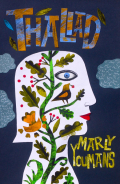 Thaliad by Marly Youmans composes her story in free verse reminiscent of heroic epics (a sort of Homer meets Gerald Manley Hopkins), Thaliad recounts the aftermath of a fiery apocalypse and the dangerous journey of a band of children led by a girl whose prophetic visions are guiding them. They seek a mystical a sanctuary on the edge of a lake where, even as children, they must confront the challenges of re-creating a world illuminated by hope and love. In this stunning narrative the eternal is always close at hand in both violent and transfigurative powers. Read more >>
Thaliad by Marly Youmans composes her story in free verse reminiscent of heroic epics (a sort of Homer meets Gerald Manley Hopkins), Thaliad recounts the aftermath of a fiery apocalypse and the dangerous journey of a band of children led by a girl whose prophetic visions are guiding them. They seek a mystical a sanctuary on the edge of a lake where, even as children, they must confront the challenges of re-creating a world illuminated by hope and love. In this stunning narrative the eternal is always close at hand in both violent and transfigurative powers. Read more >>
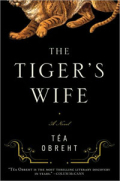 The Tiger's Wife by Tea Obrecht is an astonishing novel, set in what was once Yugoslavia over the course of WWI, WWII, and the recent wars that resulted in its dissection into new territories. War forms an continuous backdrop throughout the novel, often as a distant but deeply felt anxiety and sometimes exploding on the community. Tavelling is a hazard as boundaries shift with the conflicts and "our city," or "our fields" abruptly become someone else's property. Identities shift too as the long married wife whose origin, faith, or language suddenly mark her as an enemy to the new state. Nadia, the novel's protagonist, is a young pediatrician who sets out on a perilous journey, crossing newly minted borders to understand the reasons for her beloved grandfather's strange disappearance and his death alone in a remote village. Read more > >
The Tiger's Wife by Tea Obrecht is an astonishing novel, set in what was once Yugoslavia over the course of WWI, WWII, and the recent wars that resulted in its dissection into new territories. War forms an continuous backdrop throughout the novel, often as a distant but deeply felt anxiety and sometimes exploding on the community. Tavelling is a hazard as boundaries shift with the conflicts and "our city," or "our fields" abruptly become someone else's property. Identities shift too as the long married wife whose origin, faith, or language suddenly mark her as an enemy to the new state. Nadia, the novel's protagonist, is a young pediatrician who sets out on a perilous journey, crossing newly minted borders to understand the reasons for her beloved grandfather's strange disappearance and his death alone in a remote village. Read more > >
February 7, 2022
A Bordertown Throw Back
When you find wonderful memories digging in your archives. How young we look.
The internet has brought me a wonderful and unexpected gift in this awesome photograph from David Dyer-Bennet taken at the Fourth Street Fantasy Convention in 1987. This lovely trio is of Terri Windling in her thistle down hair at the time, a lovely Patricia McKillip, and me, in my Bordertown skateboard t-shirt. I love this photo because we are all smiling, looking so young and I remember how much fun it was to be together at those early conventions. For all of us it was usually a once a year (twice if we all made it to World Fantasy) chance to be together in the same place for a couple of hectic days.
Photo credit: Fourth Street Fantasy Convention Copyright �� 1987 David Dyer-Bennet. All rights reserved.
February 4, 2022
A Moment With Sweeney Astray and The Stags
"Those unharnessed runners
from glen to glen!
Nobody tames
that royal blood,
each one aloof
on its rightful summit,
antlered, watchful.
Imagine them,
the stag of high Slieve Felim,
the stag of the steep Fews,
the stag of Duhallow, the stag of Orrey,
the fierce stag of Killarney..."
From Sweeney Astray a version from the Irish by Seamus Heaney
Art: Illustrated Manuscript: Gaston Phoebus, Le Livre de la chasse (Paris, ca. 1407)
February 1, 2022
Language of Cowboys and Horses II
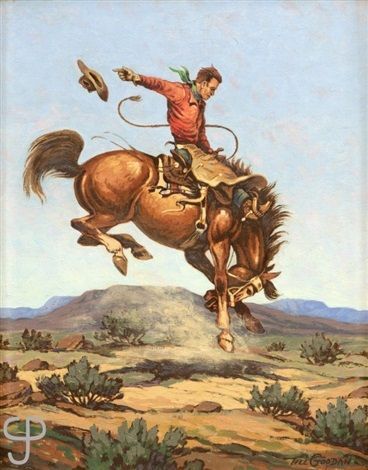
The relationship between cowboys and their horses is in someway an ancient tradition. Each man seeks to know his horse, to count on the horse for the cowboy's livelihood and at times, in the long cattle rides, for survival. But wild horses must also be broken, and trained -- an arduous task for the cowboy. While the outcomes are usually good, especially in the hands of an experienced cowboy, it can still get rough at times.
This list comes from "Cowboy Lingo of Texas." If you might want to read more, you can search it in a good library. Here's the call number: GR 115.B7
The cowpuncher who rides into the herd and cuts out the horse desired is called a Peeler. The next step is to put the saddle or "the ellum (elm)and screw it down." Other words for saddle include include "hull" and "cack," a word describing the horse objecting to the saddle as though it were "cactus" on his back.
On cold mornings young broncos pitch or "frog walk" when first mounted. When a rider mounts the horse, he calms the horse down to correct the rolling gait.
Once the cowboy settles the horse, corrects the frog walking of his horse, he is said to have "found his seat." But if the rider is thrown off, the spectators say the rider was slow "hitting (catching, finding) his saddle. A cowboy "blows his stirrup" when he loses his foothold on the stirrup.
When a horse bucks he "wrinkles his spine," "folds up," or "boils over."
When the bucking bronco gets his head between his knees the cowboys say he "swallows his head" and when the horse pitches in this position, he "breaks into two."
Only a skilled cowboy can stay on the back of bronco, "breaking in two," and the cowboy rides the difficult horse whipping him with a "fan" --his cowboy hat.
When a rider who chooses not to scratch the bronco with his spurs he is "coasting on the spurs."
Language of Cowboys and Horses I
Years ago, when I was writing Flight of Michael McBride, I researched the unique language used by cowboys to describe their horses, their activities, and even the different phases of their lives. As a writer, how could I not be captivated by an entirely new diverse lingo used to express the fullness of a life lived on the range. As I now have four grandchildren on their way to becoming buckaroos, I thought it worthwhile to revisit those lists and post them here.
This list comes from "Cowboy Lingo of Texas." If you might want to read more, you can search it in a good library. Here's the call number: GR 115.B7
Of Horses:
Owl Head: an animal that cannot be trained either to work or to ride.
Stick Horse: has to be forced to do everything he does.
Cold Blooded Horse: not a thoroughbred horse
Night Horse: one staked near a cowpuncher's bed for immediate use in an emergency such as a stampede.
Cold Jaw Horse: is one that is difficult to rein or stop, because he ruins the rider's leverage by getting the bit between his teeth and holding on to them tenaciously.
Mocky: a young mare, perhaps called such because she mocks the bronco-buster in being frisky and mettlesome.
Top Horse: best of the group
Cutting Horse: one specially trained to separate or "cut" a single animal from a whole herd. (note from author: "I have seen one cutting horse who could "cut" a hen from a big flock of chickens.
Outlaw: a killer horse
Salty Horse: a vicious beast
Cantankerous Horse: unruly
Hame-Headed Horse: stupid
Mount: one horse put a side for special riding jobs
Remuda: a number of horses corralled
Cavy: a variant of remuda for good riding horses kept close for roping and herding young calves.
Roller, Snorter, Roarer: a horse whose excitability appears to be due to the growth of small polyps in the nostrils which cause him to snort.
January 30, 2022
One Does Not Say No to Baba Yaga
There are moments in writing that feel so spontaneous that it is hard to believe they have come from oneself but instead are descended in the form of writerly-grace. When Jane Yolen and I wrote Except the Queen, we began by separately creating characters, each with their own voice and chapters, and intuitively stitching them together to form one narrative. It was fun as it invited a serendipitous approach to writing. I always assumed a direction, a motive, a line in the plot until Jane sent me her most recent chapter and everything went out the window, and I had to react to her chapter with something entirely different than I had imagined. I think I returned the favor to her as well on some occasions -- and that process turned out to be incredibly fruitful.
Baba Yaga showed up unannounced in a boxcar slowing down just long enough to allow a terrified and transformed fairie get hauled aboard by a pair of broad-fingered hands. I hadn't planned her appearance at all. It was as though she stepped in and demanded of me to include her in the novel. Despite her dangerous reputation, she had a killer sense of humor demonstrated by her attempts to educate the new arrival to the human world on the art of blending in, beginning with a lesson on the casual use of the word "fuck" and "shit" on the college campus.
There was another moment that also wrote itself, when one of the main characters Meteora recalls a confrontation between the Fairie Queen and Baba Yaga at the court. I am certainly not the first writer to imagine her as a singular creature, her own archetype, out of time and eternal. But the written expression of such a unique status came as a surprise to me once I had written it down as she instructed.
"She leaned back, all the while sucking on her lower lip, scraping her tusks against the purple flesh. She was wearing odd clothes--odd in the sense that she wearing any at all -- for the little I knew of her, Baba Yaga was not beholden to the fashions of the Seelie court or man himself. She was old enough to have roamed the pristine forests in gleaming nakedness when first man and first woman still wore their skins in innocence. She could not forgive their betrayal, the death of those perfect forests, and now wore the skin of old age, of mortal corruption, to remind those who encountered her that she had not forgotten.
"Serena and I had seen her once Under the Hill. Accustomed to the cloth of beauty and youth, we were goggle-eyed at her withered hide, her long sagging breasts hanging low over her bony chest. Her hips jutted like the pelvis of a starved cow, the loose skin of her belly lapped in folds over the tangled fur of her sex. But her spindled arms were wound with taut ropes of muscles, her hands broad as spades with thick fingers that ended in black nails, sharpened to razor points. She had refused all gifts of clothing the Queen had offered to her: the finely woven cloaks with silver clasps, the green silken gowns, the lace chemises and pretty petticoats.
"Serena and I had talked about nothing else for days. How from a leather pouch slung low on her hips, Baba Yaga had withdrawn a necklace of little bones and knuckles and placed it around her neck. How the court had flinched at the sight of it. Even Red Cap, there as an emissary from the UnSeelie court, bowed his head before the mocking challenge in her flaming eyes. All fell back from her, all except the Queen who bloodied her fine garments carrying the carcass of a new slaughtered fawn and placing it as an offering in Baba Yaga's hands. "
January 7, 2022
Moving into a New Year
...with scars and a will to keep ongoing. I have had one bumpy ride this last year, and this year requires, I believe, some of the same fortitudes that kept me going last year when I could barely stand it. A triple bypass surgery, expertly performed by a brilliant and world-recognized surgeon, still doesn't add up to a quick recovery. It is a year of pain and loss. Cardiac rehab helps give back some sense of self, even though I still hurt, fall asleep at 6pm, and forget words, even the days of the week. It's becoming vegan, so I hope to survive my father's heritage by giving up the foods that might harm me now. Though I might sneak a small slice of rich buttery cake every once in a while.
January 4, 2022
Excerpt from The Innamorati: The Libertini Rehearse, I
The Commedia dell' Arte in the 16th century was a vigorous form of theater, and a largely improvised theater, with established stock plots and bits of commedic exchange that employed a free flowing rehearsal -- a chance to invent and reinvent the plays so the performances remained fresh and current to their audiences. For the actors who performed the roles of the different Zanni (the clowns) there were physical demands, requiring agility and athleticism. In the background, there was an on-going apprenticeship with the children of the actors to acquire experience and understanding of their parent's craft and carry the troupe into the next generation.
Beneath a star-studded sky, the maestro of the Libertini studied his actors and pondered the next two weeks. Alberto Torelli was a tall, well-built man. Though in his forties, he carried himself like an athlete. His black hair, salted with grey at the temples, was thick and wavy. He had an expressive face, with arched eyebrows poised over intense, dark eyes. He wore a neatly trimmed mustache and goatee, which he stroked as he thought about their plans. In a month the Libertini would perform in the wealthy palazzos of Milan's nobles. There they would find a much better reception than at this rude seaside camp where they were now. But Alberto knew that his company needed the journey along the coast to develop new plays. They needed more rehearsals and the opportunity to experiment in front of rougher audiences. If these villagers laughed, if they wept and applauded, then Alberto knew his troupe could proceed with confidence to the more daunting audiences of the nobility.
Alberto had high hopes for this company. It was a good mix of experienced hands and energetic newcomers. From Milan they would go west to Turin, and then across the border into France. There, with the right letters of introduction, they would be able to make a comfortable season for themselves.
Alberto glanced at his wife, Isabella, where she sat reading a book of poetry. She was radiant in the glow of firelight, her skin the color of ivory, her long golden hair rippling over her soft, rounded shoulders. Even in the crude camp of wagons and horses, she maintained an aura of elegance. She sat on rugs amid Turkish pillows, her tiny feet encased in embroidered slippers. Isabella was born a prima donna, an Innamorata who could seduce the audience simply by her feminine presence. Alberto had never been happier in his life than the day she had consented to marry him.
As if feeling the warmth of his stare, Isabella glanced up from her book and smiled. Alberto felt his knees go weak. She kissed a pearl-colored fingertip and blew the kiss to him before returning to her book. Alberto caught the kiss and touched his fingers to his own lips. Beyond Isabella sat Fiammetta, who was nursing her baby daughter, Rosella. Fiammetta was married to Flavio Fiorillo, the actor working on the role of II Dottore. Sitting next to her was Alberto s daughter, Silvia, practicing a singing duet with Fiammetta. At sixteen, Silvia was already a charming young woman. But where her mother, Isabella, was golden, Silvia was raven-haired, like Alberto. She had expressive dark eyes and a pouting red mouth.
"You piece of Spanish shit!"
"Italian sop!"
"Paella-breath!"
"Pasta-head!"
"Crab louse! You're getting on my tits!" "Pus-plague sore!"
"I vomit your insults and throw them at your pox-covered face!"
"I'm going to kill you for that!"
Alberto smiled, watching the antics of Gianni Moretti and Bruno Pasquati rehearsing a scene between the blustering II Capitano and the scrappy king of insults, Pulcinella. The upper halves of their faces were covered by black leather masks with huge black noses and rumpled foreheads. Bruno, playing Pulcinella, wore a tall dusty fez, while Gianni, as II Capitano, had a sweeping mustache that puffed out with every word he spat. The two actors swaggered with huge pot bellies, their shoulders thrust back as they traded insults.
Excerpt from The Innamorati: The Libertini Rehearse, I, Excerpt from The Innamorati: The Libertini Dine and Create, II.
January 3, 2022
Foreign Lander and the Life of the Sailor/Soldier
I recently came across this beautiful folk song -- sung here by Tim O'Brien, whose mournful fiddle is as haunting as the song. It is an odd combination of of martial spirit, the soldier's success in battle, pride in his accomplishments at having served with brave commanders and an unanswered longing for a woman whose "beauty has conquered me." We are I think, more aware of the female lament song, the soldier gone to war leaving her to wait (or not) seven years, the rake who abandons her with a baby, the lover murdered by her brothers. Such a list of catastrophes that separate a couple.
But this one is strangely as modern as it is historical -- sung at least two hundred years ago by British singers, and then reformed in slightly altered versions in Appalachia, that second home for British folk songs remade in the language of the hill country folk. One can read the sentiments in the Civil War and WWI and WWII letters of soldiers who have fought many wars, finally ready to put away the sword and return home to a waiting wife and children. For those who remained unmarried during their service, it is to hope to find love and settle down, far from the where "the wild beasts howl."
We are a military family, and so I know many of those modern-day fighters for whom this song would resonate. The more specialized the warriors, such as those in special forces, the more likely marriages fall apart due to the long deployments and the stress of being alone. Often, those warriors remarry successfully, but only after they have resigned their commission. Late families still bring children and joy. And there are those warriors, like the Foreign Lander, who wait until they are ready to leave, until they feel their work is finally done, until they step down from doing the task for which they are uniquely suited, and for when they can at last transfer their undying loyalty for brothers on the battlefield for a life at home, and a woman "whose beauty has conquered" him.
And simply because I love this song and the mandolin which I am still endeavoring to play adequately, here is a lovely version by Sarah Jarosz with notes that ripple like water.
Here are the lyrics:
I've been a foreign lander for seven years or more.
Among the brave commanders where wild beasts howl and roar.
I've conquered all my enemies on land and on the sea, but you, my dearest jewel, 'tis you have conquered me.
I cannot build a ship of love without the wood of trees.
The ship would burst asunder should I prove false to thee.
If ever I prove false, love, the elements would moan.
The fire would turn to ice, love, the seas would rage and burn.
Have you heard the mourning dove?
She's flying from pine to pine.
She's mourning for her own love the way I mourn for mine.
I lie awake out in the night.
I see the shining stars.
I wonder if you see them too wherever you are.
Here is a lovely version sung by Jean Ritchie which includes some fascinating additional verses.
http://research.culturalequity.org/rc-b2/get-audio-detailed-recording.do?recordingId=12781
And thanks to Mike, posting in the comments and bringing to my attention a Carter Family version on the theme of parting couples and going off to war. I did find this amazing version of it from No Strings Attached Band -- a group from India, which demonstrates again the migration of song and culture around the world. From their you-tube page: "The band comprises of Diptanshu Roy (mandolin) Nabanita Sarkar (vocals) Koustav Dey (guitar) Sujoy Chakravarty (songwriting/guitar)."
Midori Snyder's Blog
- Midori Snyder's profile
- 87 followers




